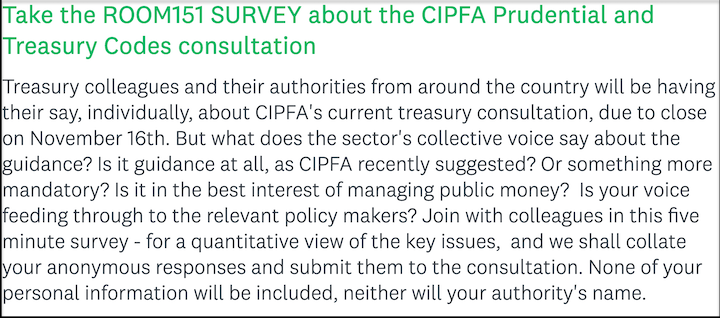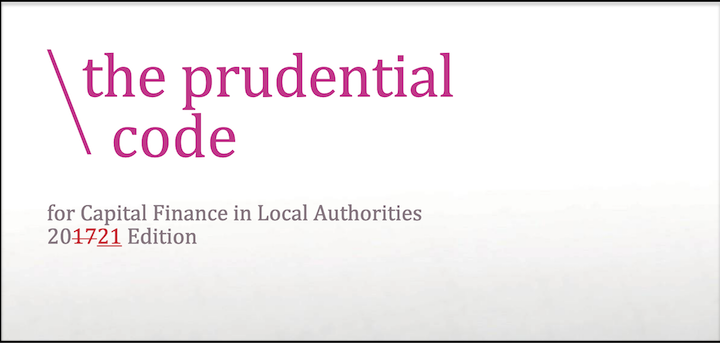
Controversy continues to gust about the consultation over the Prudential and Treasury Management codes.
Revised draft guidance of the consultation—published in September—has caused some concern that councils would need to exit long-term investments that could be viewed as “primarily” for a return.
There were also worries about the code’s approach to investment in pooled funds and whether they would also need to be exited. However, in a recent Room151 webcast including speakers from both CIPFA and the CIPFA Treasury Management Panel, it was strongly suggested (to over 240 council treasurers) that they would not need to sell down long-term investments provided that their portfolios could be reasonably explained through the liability benchmark mechanism.
Encouraging local authorities to consider more closely their investment risk, and to be able to explain better their strategic investments, appeared to be the general aim.
There was yet another twist in the tale last week, however, when CIPFA’s senior policy and technical manager, Richard Lloyd-Bithell, launched a withering and apparently unprovoked attack on “advisers” (no more detail was provided), invoking none other than the Brexit leave campaign’s rhetoric of “take back control”.
What treasurers are supposed to take back control of, and from whom, was not made abundantly clear—see the article here—but it has left observers scratching their heads a little about what they heard during the Room151 webcast.
Lloyd-Bithell lambasted investment strategies in his article that have been built all “in the name of investment portfolio diversity and keeping pace with inflation.” Who knew investment diversification and keeping pace with inflation was a bad thing? Isn’t it standard and good practice to try and achieve both?
Leaving to one side the questionable decision to publish an excoriating opinion piece about one’s own consultation, during the consultation period, it has perhaps taken everyone back a step in terms of their overall understanding of what CIPFA would like to achieve and what is really being proposed in the new guidance.
So, Room151 wants to hear your views. In a survey we’d like to know whether “net borrowers” should be prevented from making long-term investments or whether your authority has borrowed with the intention of investing in pooled funds?
We’d like to know if you think it’s clear what is guidance and what is being mandated?
The survey also asks whether finance managers believe the code could “unduly” restrict their ability to “prudently” manage their treasury portfolios and whether new rules should limit the reasons for borrowing beyond those set down in law. There are also questions asking whether treasury managers will have enough time to adapt treasury strategies for 2022-23 if the finished code emerges in December.
To fill in the 5 minute survey click here. The survey will remain open until lunchtime on November 14th.












